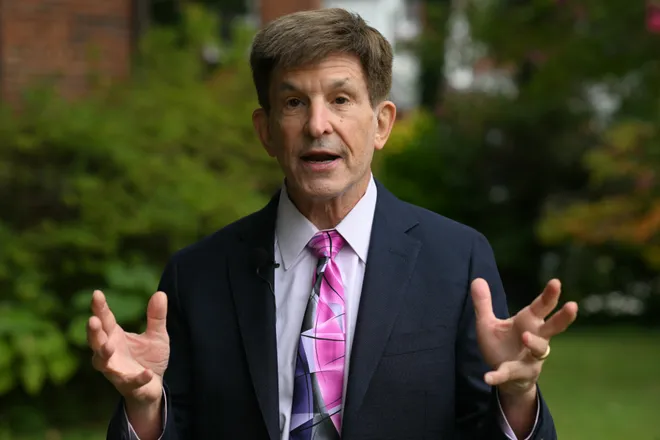who is most likely to win the US election ?
- November 4, 2024
- 0
Allan Lichtman vs. Nate Silver: Who Will Accurately Predict the 2024 Election? WASHINGTON – As Americans cast their ballots in the 2024 presidential election, a showdown between two
Allan Lichtman vs. Nate Silver: Who Will Accurately Predict the 2024 Election? WASHINGTON – As Americans cast their ballots in the 2024 presidential election, a showdown between two

Allan Lichtman vs. Nate Silver: Who Will Accurately Predict the 2024 Election?
WASHINGTON – As Americans cast their ballots in the 2024 presidential election, a showdown between two of the country’s top political forecasters, Allan Lichtman and Nate Silver, could determine who best understands the complexities of modern electoral politics.
Allan Lichtman, a history professor from American University, has accurately predicted nine out of the last ten presidential elections using his “13 Keys to the White House” model. This year, he foresees a victory for Vice President Kamala Harris. Conversely, Nate Silver, renowned statistician and founder of FiveThirtyEight, recently stated in the New York Times that while the race is tight, his instincts lean toward a win for former President Donald Trump.
The two experts’ methods are as different as their predictions, sparking a lively debate on social media. Silver has criticized Lichtman’s approach, suggesting that his “13 keys” may even favor Trump, and questioned Lichtman’s reliance on historical patterns without accounting for recent developments. Lichtman defended his model, claiming that Silver’s background in economics lacks the historical rigor needed for such forecasts.

Lichtman’s “13 Keys” model, developed with the help of Russian mathematician Vladimir Keilis-Borok, is based on historical indicators that answer whether the incumbent party will win. It doesn’t consider recent events, campaign messaging, or polling data. Instead, if six or more keys swing against the incumbent party, the challenging party is likely to win. In 2024, Lichtman asserts that at least eight of the keys favor Harris.
Silver, by contrast, builds probabilistic models that rely on polling data, economic indicators, voter turnout predictions, and historical trends, adjusting for poll reliability. Silver argues that this model reflects shifts in public opinion more accurately, particularly as the campaign season unfolds.
Lichtman has an impressive track record, only missing the 2000 election, where a protracted recount battle handed George W. Bush the presidency over Al Gore. Silver gained national attention for correctly predicting the 2008 election in 49 out of 50 states, and his model has held up in subsequent elections. In 2016, Silver’s model gave Trump a higher chance of winning than most analysts, though he still predicted a likely win for Hillary Clinton.
Thomas Miller, a data scientist from Northwestern University, contends that both approaches have limitations. Miller’s own model incorporates data from PredictIt betting markets and 60 years of historical analysis. Miller argues that neither Lichtman’s historical approach nor Silver’s poll-heavy model can fully account for today’s electorate. He highlights that inflation and economic perceptions are key issues in 2024, despite traditional economic indicators suggesting the U.S. economy is performing well.
David Wasserman from the Cook Political Report finds Silver’s data-driven approach more rigorous, as it adjusts for evolving voter sentiment. Wasserman believes that campaigns do matter and influence public opinion, a factor Lichtman’s model excludes. Silver himself acknowledges Lichtman’s contributions to understanding presidential elections but argues that his own model’s adaptability provides more relevant insights into shifting political dynamics.
At its core, the divide between Lichtman and Silver is philosophical. Lichtman trusts that historical fundamentals determine elections, while Silver believes public sentiment and campaign dynamics play crucial roles. As the 2024 election results unfold, one question looms large: Will it be history or public opinion that prevails in predicting the next president?